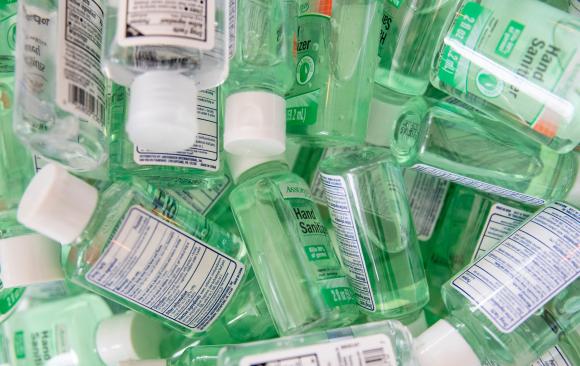


Under legislation, Attorney General could penalize retailers, manufacturers and distributors who raise prices on consumer medical supplies by more than 10% during a public health emergency.
"We have zero tolerance for this behavior in New York City," said Mayor Bill de Blasio. "Any company who tries to take advantage of New Yorkers during this crisis will have their feet held to the fire. My message: just don’t do it.”
City’s Consumer Protection Law that makes price gouging illegal for any personal or household good or any service that is needed to prevent or limit the spread of or treat new coronavirus (COVID-19). The Rule (NYC Administrative Code 20-701(b)) makes it illegal to increase prices by 10 percent or more during a 60 day period. The Rule can be extended once for an additional 60 days. The Rule covers any personal or household good or service—such as disinfectants, soap, and cleaning products, diagnostic products and services, medicines, and tissues—that is needed to prevent or limit the spread of or treat COVID-19. The fine for price gouging is up to $500 per item or service. If businesses are paying more to obtain these items themselves, they must provide proof to DCWP and any increase must be comparable. If a business paid $2 more per item, they cannot charge customers $50 more.
In early March, during a Coronavirus press briefing, Governor Andrew Cuomo addressed price gouging, on difficult-to-find items like hand sanitizer and antibacterial wipes. "If you are a store, you can lose your license and we are very serious about this," Cuomo said. "For the few dollars that you are going to make during this situation it is not worth your while. It is not just price gouging. It is price gouging in an emergency situation where you are being exploitative of the public."
Please visit the Attorney General’s website to make a price-gouging complaint, you can also file a complaint at nyc.gov/dcwp or by contacting 311 and saying “overcharge.” New Yorkers can also call this number to report price gouging: 1-800-697-1220.
“We will prosecute businesses using this public health crisis to take advantage of New Yorkers who are concerned for their health and we urge consumers to file a complaint if they are overcharged,” said DCWP Commissioner Lorelei Salas. “To the business community, if you incurred additional costs to supply these items, we will take that into account but what we cannot tolerate is businesses that are knowingly preying on vulnerable consumers for a profit. Do the right thing. Don’t overcharge.”
This week, the Department of Consumer and Worker Protection (DCWP) filed a case against Metro Drugs for $37,500 for price gouging of face masks; City has received 4,000 complaints and issued 1,000 violations total since March 5th. Mayor Bill de Blasio and DCWP Commissioner Lorelei Salas announced DCWP inspected Metro Drugs twice and both times the pharmacy was selling face masks at drastically increased prices—as high as $200 for 20 masks.
DCWP is actively inspecting stores based on consumer complaints. Businesses found to be overcharging consumers 10 percent or more for any personal or household good or service that is needed to prevent or limit the spread of or treat COVID-19 will be issued a violation. Examples of covered products include disinfectants, soap, and cleaning products, diagnostic products and services, medicines, and tissues. Since March 5, DCWP has received more than 4000 complaints and issued more than 1000 violations for price gouging.
The fine for price gouging is up to $500 per item or service. If businesses are paying more to obtain these items themselves, they must provide proof to DCWP and any increase must be comparable. If a business paid $2 more per item, they cannot charge customers $50 more.
DCWP encourages consumers who are overcharged to file a complaint at nyc.gov/dcwp or by contacting 311 and saying “overcharge.” Consumers who believe they were victimized by price gouging should keep their receipts and any information about the store where the transaction occurred, and file a complaint with DCWP. If the price gouging occurred while DCWP’s regulations were in effect, DCWP can still prosecute the illegal activity.
State Senator Brad Hoylman introduced legislation in Albany to address price gouging during public health emergencies. His proposal goes beyond the state’s price gouging law already on the books, implemented after Hurricane Sandy.
Senator Hoylman said: “It’s said that after the storm come the vultures – and that’s exactly what could happen here if we don’t act now to stop price gouging in anticipation of the coronavirus outbreak here in New York. Profiting off fear of disease is unconscionable. We can’t allow shady businesses to hike prices on the supplies New Yorkers need to stay safe and healthy."